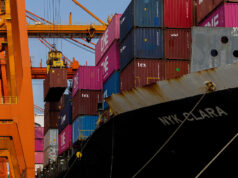AMLC wants power to issue subpoenas
THE Anti-Money Laundering Council (AMLC) is seeking to have the power to issue subpoenas, as part of its efforts to go after financial crimes.
“We’re proposing the enhancement of investigating powers of AMLC. Particularly, we want our investigators and our office to have a subpoena power through the AMLC,” Matthew M. David, officer-in-charge of the AMLC Secretariat, said in a press chat at the central bank on Friday.
Aside from subpoena powers, the watchdog is also proposing amendments to the Anti-Money Laundering Act (AMLA) to include crimes related to tax evasion and terrorism financing.
In an e-mailed response to BusinessWorld, an AMLC representative said under current regulations, they cannot compel persons not covered by their jurisdiction to produce and submit information and documents.
“Currently, the AMLC investigates money laundering and terrorism financing and gathers evidence through inquiry or through requests for assistance from law enforcement,” the watchdog explained in an e-mail.
The AMLC said the law does not include tax crimes, which are among the designated category of offenses related to money laundering set by international standard-setting body Financial Action Task Force (FATF).
One of the recommendations under the Asia/Pacific Group on Money Laundering’s (APG) latest Mutual Evaluation Report is to amend legislation that will allow AMLC to have comprehensive investigative powers. These include allowing AMLC to “search, seize, take witness statements, and use special investigative techniques when conducting terrorism financing investigations.”
APG is the regional unit of the FATF.
“Failure to implement key recommended actions of the Mutual Evaluation Report will result to the Philippine’s automatic referral to the International Co-operation Review Group (ICRG) or to ‘gray-listing,’” AMLC said.
If a country is in the FATF’s gray list, it means it is considered as a high-risk and non-cooperative jurisdiction. The Philippines was previously removed from the FATF’s gray list in 2013.
In October, Bangko Sentral ng Pilipinas Governor and AMLC Chairman Benjamin E. Diokno said that the country is currently under a one-year observation period and is required to submit a report on the implementation of the recommendation.
“We cannot afford to have the Philippines in the FATF’s list of high-risk and non-cooperative jurisdictions. Hence, we should be very strategic in our focus for the next 12 months,” he said at that time.
The AMLC said amendments to the AMLA and the Human Security Act (HSA) should take effect by June 2020 “to provide enough time for the country to implement them before the 12-month observation ends in October 2020.”
AMLC has so far frozen over P1 billion worth of assets and seized P600 million from January 2018 to July 2019, in the course of investigations into money laundering and terrorist financing. It was in 2018 when the amended Implementing Rules and Regulations (IRR) of the AMLA were implemented. — Luz Wendy T. Noble



